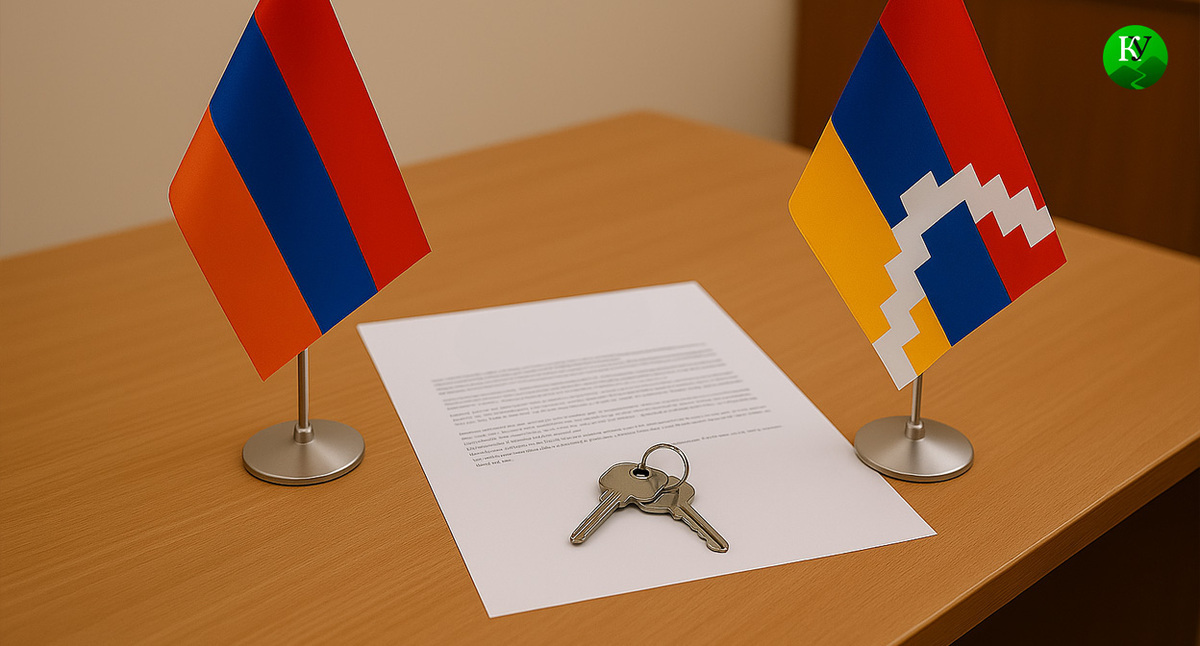Armenian authorities accept a number of proposals from Council for Protection of Nagorno-Karabakh People’s Rights
Activists from the Council for the Protection of the Nagorno-Karabakh People’s Rights succeeded in convincing the Armenian government of the need to accept a number of proposals to provide internally displaced persons (IDPs) with housing. However, the most important proposals have been rejected.
The “40,000 + 10,000 drams” social assistance programme was in effect for Nagorno-Karabakh refugees in Armenia, under which each refugee was supposed to receive 40,000 drams (about 103 US dollars) to pay a rent for housing and another amount of 10,000 drams (about 25.8 US dollars) to pay for utilities. Starting from April 2025, the Armenian authorities decided not to extend the mentioned social assistance programme for people of working age, but to leave it in effect only for children under 18, people with disabilities, and pensioners. The refugees from Nagorno-Karabakh claim that after the collapse of social assistance programmes, they would not have enough money even for rent of housing, and they have started protesting against the Armenian government’s decision to cut the social assistance programme.
On its page in Facebook*, the Council for the Protection of the Nagorno-Karabakh People’s Rights posted the minutes of meetings with the government of Armenia, which listed the proposals of the expert working group on housing issues, with which the government partially agreed.
In particular, the Armenian government has accepted the Council’s proposal to provide “an opportunity to review and clarify the database of internally displaced persons (IDPs),” announcing that “an interdepartmental commission will be created to study individual cases.”
The government also promised to “provide in the nearest future the opportunity to apply for participation in the housing programme to all target groups of refugees, regardless of the number of minor children in the family and the presence of persons belonging to other vulnerable groups” and to provide refugees with the opportunity to “take advantage of state housing assistance programmes that do not provide for relevant restrictions and the terms of which do not contradict the main terms of the social assistance programme.”
In addition, the government promised to discuss “the issue of considering children born as of December 31, 2026, as beneficiaries of the social assistance programme if the family receives a certificate before December 31, 2025.” It is also promised to consider the Council’s proposal, according to which “when banks assess the creditworthiness of beneficiaries, the amount of the certificate should not be taken into account as a liability, since it is supposed to be repaid by the government.”
“The negotiations are ongoing. However, if they are not successful on key issues, as we have publicly promised, the Council will suspend the discussions with the government of the Republic of Armenia and announce its further steps.”
“However, our most important proposals have not been accepted by the Armenian government. We still have some discussions to conduct that may lead to new changes. The negotiations are ongoing. However, if they are not successful on key issues, as we have publicly promised, the Council will suspend the discussions with the government of the Republic of Armenia and announce its further steps,” the “Caucasian Knot” correspondent has been informed by the Council for the Protection of the Nagorno-Karabakh People’s Rights.
At a meeting of the National Assembly of Armenia held on June 6, Narek Mkrtchyan, Minister of Social Affairs of Armenia, told MPs that “given the low level of applications for participation in the housing programme, the provision of all target groups with the opportunity to receive certificates for the purchase of housing in the near future is being discussed.” The Armenian Minister of Social Affairs has also announced the creation of an interdepartmental commission within the housing assistance programmes for refugees, which will deal with the database of internally displaced persons (IDPs) from Nagorno-Karabakh.
The Ministry of Labour and Social Affairs of Armenia reports that within the housing programme, certificates have been issued to 1400 families of refugees from Nagorno-Karabakh, of which 300 certificates have already been used.
Refugees from Nagorno-Karabakh tell the “Caucasian Knot” correspondent that there has been no significant progress in the issue of protecting their rights.
Susanna Shakhbazyan from Stepanakert believes that “first, the Armenian authorities should arrange a list of those who want to receive those housing programme certificates.” “It is necessary to develop a programme for the return of Artsakh residents to Artsakh (Nagorno-Karabakh), since many people believe in the return to their homeland,” the refugee has noted.
Everything is being done to further aggravate our hopeless situation
“There is no positive progress on the above-mentioned points and the most important issues. This is a waste of time. Until the refugees are provided with housing, the ‘40,000 + 10,000 drams’ programme may not be stopped. Although over the past two months, a refuge from Nagorno-Karabakh has received only 40,000 drams. And everyone in turn turned a blind eye to the situation. There may be no talk of any mortgage. This would become a burden and an unaffordable option for all refugee families,” believes Amalia Grigoryan, a refugee from Nagorno-Karabakh.
Elena Pogosyan from Stepanakert suggests that “until the housing programme certificates are implemented, the Armenian authorities are obliged to continue the vital “40,000 + 10,000 drams” social assistance programme. “If people have not yet been issued a certificate, the state is obliged to provide them with a temporary place to live or continue to provide financial support to pay for rented housing,” the refugee has added.
This was originally published on the Russian page of 24/7 Internet agency ‘Caucasian Knot’ on June 9, 2025 at 02:45 am MSK. To access the full text of the article, click here.
*On March 21, 2022, the Tverskoi Court of Moscow banned the activities in Russia of the Meta Company, owning the Facebook, Instagram, and WhatsApp, in connection with extremist activities.
Source: CK correspondent

